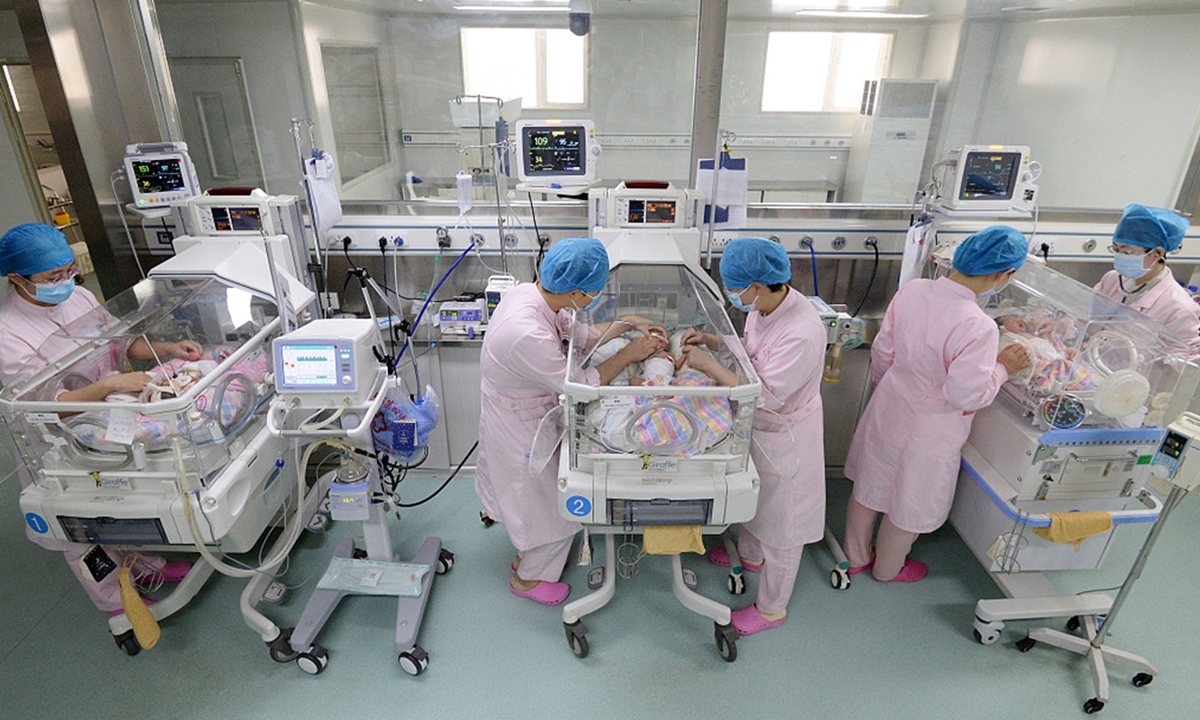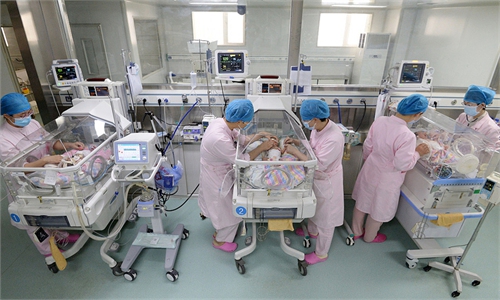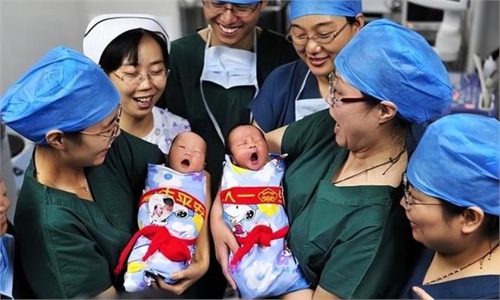NE China’s Harbin expected to provide monthly childcare subsidies to boost population growth

Third-child policy Photo: VCG
The Harbin health authorities in Northeast China's Heilongjiang Province recently issued a draft implementation plan on optimizing birth policy to promote long-term and balanced population development, as one of the latest efforts to encourage fertility in the region. The draft plan is open for public comment from Tuesday to October 31.
The couples with household registration in Harbin living in the city, who have two or more children under the birth policy, can receive a monthly childcare subsidies for each child until the child is three years old, according to the draft plan.
The city also plans to improve the housing security policy to support childbirth. Families who give birth to their second or third child after October 29 last year will be given a home purchase subsidy of 15,000 yuan ($2,091) or 20,000 yuan under certain conditions, said the draft plan.
The family who has two or more children in line with the current birth policies will also put in priority to consider public rental housing, according to the plan.
Heilongjiang lost 460,000 permanent residents in 2021 compared with the previous year, the most significant decline nationwide, according to data released by statistic authorities.
Behind the slowdown in population growth was the continued decline in child births. The other regions in Northeast China have also established more measures to encourage growth of birth rate. In 2021, Jilin Province has released plan to promote birth rate and provide supporting policies.
"Harbin's approach is an embodiment of economic support for birth, and it is also the actual policy promotion made by the local authorities based on the financial situation and family needs," Song Jian, a demographer from the Center for Population and Development Studies of the Renmin University of China told the Global Times on Thursday.
The report to the 20th National Congress of the Communist Party of China said that "we will improve the population development strategy, establish a policy system to boost birth rates, and bring down the costs of pregnancy and childbirth, child rearing, and schooling."
In 2021, China released the decision indicating that it is of great significance to implement the third-child birth policy and supporting measures to promote long-term and balanced population development.
A total of 17 Chinese government departments in August jointly released a guideline on support policies in finance, tax, housing, employment, education and other fields to create a fertility-friendly society and encourage families to have more children.
"Under the guidance of the central documents, local governments should explore appropriate policies to improve the birth rate based on local conditions," Song said.


